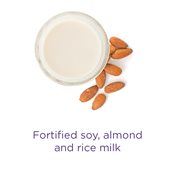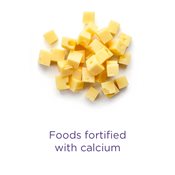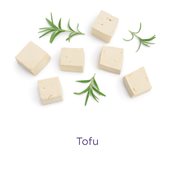 3/2/2022
3/2/2022 Why is calcium so important to your oral health?
Calcium is key to maintaining strong, healthy teeth and bones. It strengthens tooth enamel — the hard outer shell — and helps maintain the bone that supports your teeth. Healthy enamel protects your teeth from cavities and erosion. Calcium in your saliva can even help repair damage to teeth caused by acids. However, a lack of calcium can increase your risk for gum disease.
Almost all of the calcium in your body is located in your teeth and bones.
Why is it also vital to your overall health?
Calcium plays a major role in bone health by helping you maintain bone mass. When your body needs more calcium, it takes it from your bones. This means a low intake of calcium can lead to bone loss, osteoporosis and a higher risk of bone fractures.
You also need calcium for your heart, muscles and nerves to work normally. Calcium also helps your blood clot correctly. And it helps you maintain a healthy blood pressure, lowering your risk of a heart attack, stroke and other health issues.
Osteoporosis can damage oral health by weakening jaw bones and causing teeth to become loose or fall out.
What’s your recommended daily intake of calcium?
The amount of calcium you need is based primarily on your age. Growing children and teenagers require more calcium than adults. And as we age, changing hormone levels result in the need for more calcium to reduce bone loss.
Here’s the recommended amount of calcium (in milligrams) you should try to consume daily according to the FDA:
Children:
- 1-3 years old: 700 mg
- 4-8 years old: 1,000 mg
- 9-18 years old: 1,300 mg
Adults:
- 19-50 years old: 1,000 mg
- 51-70 years old: 1,000 mg (men), 1,200 mg (women)
- 70+ years old: 1,200 mg
How can I get enough calcium?
You can only get calcium from foods, beverages and supplements. The best sources include:







You may want to spread out your calcium intake over the course of a day because your body can’t absorb large amounts of calcium at once.
Vitamin D plays a key role in helping your body absorb calcium. Sunshine, fortified foods, fatty fish, beef liver, egg yolks and supplements are major sources of vitamin D.
Some people have difficulty getting enough calcium from their diets, including those who are lactose intolerant, have a dairy allergy, follow a vegan diet or have Crohn’s or Celiac disease.
If you are concerned you might not be getting enough calcium, talk to your physician or dentist before starting any supplements. Make sure to follow their advice as you can also get too much calcium from supplements, which can result in weak bones, kidney stones and more.